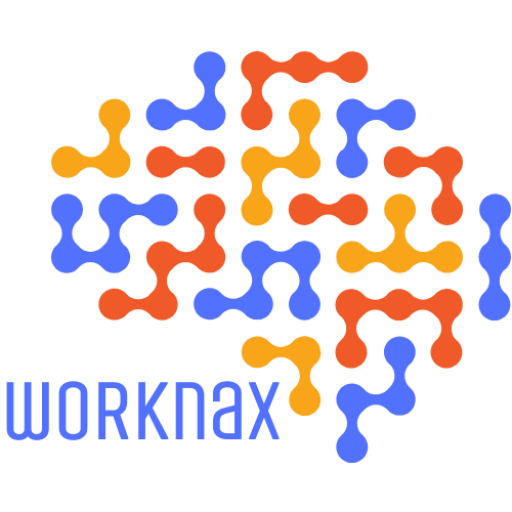Anúncios
A transição para o ensino híbrido surgiu como uma tendência significativa na educação, transformando fundamentalmente o cenário de como os alunos se envolvem com seus estudos. O ensino híbrido, que combina o ensino presencial tradicional com componentes online, ganhou um impulso sem precedentes à medida que escolas e universidades se esforçam para se adaptar aos desafios impostos pela pandemia em curso. Essa abordagem inovadora à educação não só promove a flexibilidade, como também atende a diversos estilos de aprendizagem, tornando-se uma opção cada vez mais atraente para uma ampla gama de alunos.
Nos últimos meses, educadores e administradores começaram a reconhecer o imenso potencial dos modelos híbridos para atender efetivamente às necessidades específicas dos alunos. Ao permitir que uma parcela dos alunos assista às aulas presencialmente enquanto outros assistem online, as escolas podem gerenciar o tamanho das turmas de forma mais eficaz. Essa flexibilidade crucial ajuda a manter os requisitos de distanciamento social e garante que as instituições de ensino possam continuar a oferecer educação de alta qualidade, independentemente de mudanças nas diretrizes de saúde pública que possam surgir.
Um dos componentes essenciais para o sucesso do ensino híbrido reside na integração perfeita da tecnologia. Escolas e educadores devem investir em ferramentas e plataformas digitais confiáveis que possam aprimorar significativamente a experiência de aprendizagem tanto para alunos quanto para professores. Sistemas de comunicação eficazes e softwares robustos de gestão da aprendizagem são vitais, pois facilitam consideravelmente a transmissão de conteúdo e o engajamento significativo dos professores com os alunos, sejam eles presenciais ou remotos. À medida que a tecnologia continua a evoluir rapidamente, os educadores têm a tarefa de se manterem informados sobre as melhores ferramentas disponíveis para atender a uma gama cada vez mais diversificada de necessidades dos alunos.
Além disso, a formação de professores desempenha um papel fundamental na eficácia geral dos ambientes de aprendizagem híbridos. Os educadores devem estar totalmente equipados com as habilidades essenciais necessárias para facilitar a aprendizagem presencial e online de forma eficaz. Isso inclui adquirir um sólido conhecimento de como utilizar a tecnologia para aulas interativas, desenvolver conteúdo digital envolvente e avaliar o desempenho dos alunos por meio de diversos formatos. Oportunidades de desenvolvimento profissional contínuo podem capacitar os professores e ajudá-los a prosperar neste novo cenário educacional, aprimorando a experiência geral de aprendizagem de seus alunos.
Os pais também desempenham um papel significativo no sucesso dos modelos de ensino híbrido. Seu envolvimento é crucial para ajudar a preencher a lacuna que frequentemente existe entre a escola e a família, garantindo que os alunos permaneçam engajados e motivados ao longo de sua jornada educacional. Linhas de comunicação abertas entre pais e educadores são essenciais para monitorar o progresso dos alunos e abordar quaisquer preocupações que possam surgir. Ao promover um ambiente de colaboração, as escolas podem apoiar efetivamente as famílias a lidar com os diversos desafios associados ao ensino híbrido.
Um dos benefícios mais notáveis do ensino híbrido é seu potencial único de personalizar a educação para cada aluno. Este modelo oferece aos educadores a flexibilidade de adaptar as aulas às necessidades e ritmos de aprendizagem específicos, atendendo a todos os tipos de alunos, desde aqueles que precisam de suporte adicional até aqueles que se destacam e conseguem progredir mais rapidamente. Ao oferecer uma abordagem variada à aprendizagem, as escolas podem promover significativamente maior desempenho, satisfação e engajamento geral dos alunos em seus estudos.
Outro aspecto importante a considerar é a oportunidade que o ensino híbrido proporciona para o desenvolvimento de habilidades de aprendizagem autodirigida entre os alunos. Em um modelo híbrido, os alunos frequentemente têm maior controle sobre quando e como se envolvem com o material do curso, incutindo um senso de propriedade e responsabilidade por sua própria jornada de aprendizagem. Essa autonomia incentiva o desenvolvimento de habilidades cruciais, como gestão do tempo e autorregulação, e, ao promover essa independência, o ensino híbrido pode preparar os alunos efetivamente para futuros desafios acadêmicos, bem como para as demandas profissionais.
Apesar das inúmeras vantagens oferecidas pelo ensino híbrido, ainda existem vários desafios associados a esses modelos que devem ser considerados. Nem todos os alunos têm acesso igual à tecnologia, o que pode criar disparidades significativas nas oportunidades educacionais. As escolas devem trabalhar diligentemente para fornecer os recursos necessários, como dispositivos e acesso à internet, para garantir que todos os alunos possam participar plenamente da educação, seja presencial ou online. Abordar essas questões de equidade é crucial para garantir o sucesso e a sustentabilidade a longo prazo das iniciativas de ensino híbrido.
O engajamento é outra área que apresenta desafios significativos em um ambiente de aprendizagem híbrido. Os professores podem ter dificuldade em manter o mesmo nível de interação e conexão com os alunos, independentemente de estarem em sala de aula ou participando remotamente. Portanto, estratégias de ensino inovadoras tornaram-se essenciais para manter os alunos engajados, motivados e promover a aprendizagem ativa. Incorporar uma ampla gama de elementos interativos, como enquetes, discussões e atividades em grupo, pode ajudar a preencher a lacuna entre as experiências de aprendizagem online e presencial, facilitando resultados de aprendizagem mais coesos.
As interações sociais representam mais um componente crítico do desenvolvimento geral dos alunos, que os modelos híbridos podem inadvertidamente limitar. Esses programas podem restringir as oportunidades de interações espontâneas que normalmente ocorrem em salas de aula tradicionais. As escolas, juntamente com os educadores, devem ser particularmente intencionais na criação de oportunidades de socialização, seja presencial ou online. Projetos em grupo e encontros virtuais, por exemplo, podem efetivamente promover um senso de comunidade, ao mesmo tempo que ajudam a cultivar relacionamentos significativos entre os alunos, mesmo quando não estão fisicamente presentes no mesmo espaço.
Os métodos de avaliação também exigem consideração cuidadosa em ambientes de aprendizagem híbridos. As avaliações tradicionais podem não refletir com precisão a compreensão ou o engajamento dos alunos, especialmente quando suas experiências de aprendizagem variam significativamente. Os educadores devem explorar opções de avaliação diversificadas e inovadoras, que podem incluir aprendizagem baseada em projetos, portfólios e autoavaliações. Essas abordagens alternativas de avaliação podem fornecer uma visão mais abrangente do desempenho e dos resultados de aprendizagem dos alunos, promovendo, assim, uma compreensão mais profunda do progresso individual do aluno.
Outro tópico cada vez mais relevante no ensino híbrido é a necessidade de apoio à saúde mental dos alunos. A pandemia evidenciou significativamente a importância de priorizar o bem-estar mental nos sistemas educacionais. As escolas devem considerar como fornecer recursos adequados de saúde mental para apoiar eficazmente os alunos enquanto eles lidam com os estressores associados ao aprendizado híbrido. Integrar programas de bem-estar, garantir o acesso a conselheiros e promover práticas de mindfulness podem contribuir para promover a resiliência dos alunos à medida que se adaptam a ambientes de aprendizagem novos e complexos.
À medida que a educação híbrida continua a evoluir, a pesquisa contínua torna-se essencial para identificar as melhores práticas que possam maximizar sua eficácia. Esforços colaborativos entre educadores, pesquisadores e formuladores de políticas são cruciais para ajudar a moldar o futuro da aprendizagem híbrida. Ao compartilhar insights e analisar cuidadosamente os dados sobre o desempenho dos alunos, as escolas poderão desenvolver modelos híbridos mais eficazes que não apenas atendam às necessidades únicas dos alunos, mas também atendam aos padrões e requisitos educacionais essenciais.
O sucesso geral do ensino híbrido dependerá em grande parte do nível de apoio organizacional presente nos sistemas escolares. Os líderes escolares devem priorizar a implementação de estruturas que promovam a colaboração, a comunicação eficaz e o crescimento profissional entre os educadores. Investir em infraestrutura tecnológica, treinamento de professores e recursos de saúde mental servirá para reforçar o modelo de ensino híbrido e capacitar as escolas a responder de forma proativa e eficaz aos desafios futuros que possam surgir.
Em última análise, o ensino híbrido representa uma oportunidade única para inovar as práticas de ensino e aprendizagem de maneiras significativas e transformadoras. Embora certamente existam desafios associados a esse modelo, vale a pena explorar em profundidade os potenciais benefícios — incluindo opções de aprendizagem flexíveis, educação personalizada e maior autonomia do aluno. Ao adotar uma abordagem cuidadosa e estratégica para o design e a implementação do ensino híbrido, as escolas podem proporcionar aos alunos experiências educacionais enriquecedoras que os preparam efetivamente para um mundo em rápida evolução.
Concluindo, o ensino híbrido é mais do que uma solução temporária para os desafios educacionais atuais; é uma abordagem transformadora que representa uma reimaginação vital da própria educação. À medida que educadores, pais e alunos se adaptam coletivamente às novas normas e expectativas, o foco deve permanecer firmemente voltado para a criação de ambientes de aprendizagem equitativos, envolventes e eficazes. Esforços colaborativos entre todas as partes interessadas serão cruciais para navegar nessa evolução, garantindo que os alunos recebam a educação de alta qualidade que realmente merecem, independentemente do formato de ensino. Ao aproveitar as amplas oportunidades inerentes ao ensino híbrido, podemos cultivar melhores resultados educacionais para todos os alunos, preparando assim o cenário para um futuro mais brilhante e promissor na educação.



